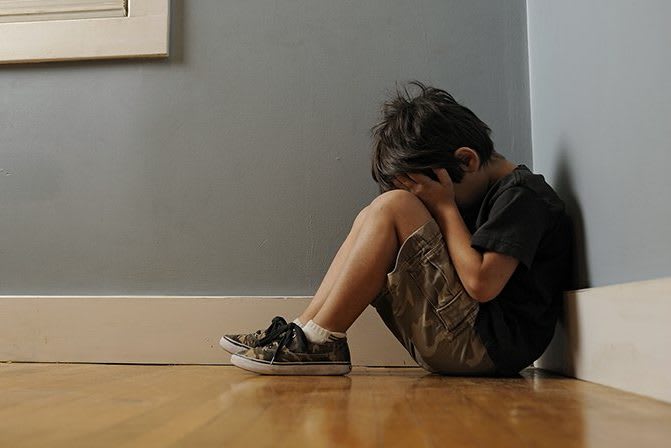Your 10 year old comes home from school in a bad mood. He slams the front door, throws his coat and schoolbag on the floor, grabs a book or the paper, and slumps on the couch without uttering a word.
You see that he obviously had a tough day and are wondering what is going on with him. You try to greet him warmly – overlooking the mess – but he just ignores you. As soon as one of his siblings gets too close he screams at them and pushes them away. So you ask him what happened and why he is in such a bad mood. He frowns and screams “NOTHING!”
Different parents react differently to such a situation. Either way a parent is wondering what really happened and how he can make the boy talk so that he will feel better.
There are a variety of reasons why your child doesn’t want to talk to you about his problems (especially as they get older). It could be that they feel weak about coming to their parents with their problems or that they are afraid of being judged or punished by their parents. Other reasons might be that they don’t believe that their parents can actually help them or sometimes they are so upset that they just need time to calm down before they can talk about it.
His Inner Conflict
What sometimes happens is that a part of your child wants to communicate to you that he is upset at something and wants to share the burden of whatever distressing experience happened, which he does with his difficult attitude. In other words, he is using nonverbal communication to let you know that he is upset. However, another part of him is not quite ready to talk to you about what´s bothering him and that´s why he doesn’t start telling you what kind of day he had or answer your question of how his day was.
This inner conflict of how much he can trust your relationship at that moment and whether it will be safe and he will feel soothed or it will be unsafe and he will feel bad can create a distressing experience for him.
Be Nurturing and Patient
At that point it´s important to reflect his struggle to him and honor and respect his ambivalence to share without pushing him to reveal anything. The next step is to create an atmosphere inviting enough for him so that he feels at least tempted to share. For example, saying “I am here if you want to talk” instead of “talk to me.” This stage needs a lot of patience and trust because it is really about his ability to share and not about you knowing the details of the story. The goal is to develop within him a sense of responsibility and independence of what to share, when to share, and with whom to share, which are crucial skills he will need to use later in life.
After he reveals some of his experiences it´s crucial to make him feel safe, which means to empathize with his difficulty, not to make him feel guilty for what happened and, at least in the beginning, not to take any concrete action about it (unless in very severe circumstances). Right now, he has the need to share his experience and not carry it all alone.
Practical Application
The point is to understand that you don´t want to make your child talk to you, but instead you want to create an atmosphere where he feels willing and safe so that he will share with you.
1. Respect your child’s dilemma
Honor and respect your child’s dilemma and ambivalence in talking to you about something difficult. Tell him that this is really a difficult struggle.
2. Be inviting
Be inviting, create safety through acceptance and patience and show him that you care about him. Give your child time until he is ready to share out of his own volition. Find a way to connect to him and spend some quality time with him, independent of his decision to share with you or not.
3. Maintain his feeling of safety
After he does share, maintain the feeling of safety by just empathizing and being there with him. Don´t take any immediate action – most problems don’t have to be solved within 24 hours. Know that sharing is a process that comes in levels and he might not share everything the first time or there might be parts of the story he will choose to keep to himself. Understand that his experience of sharing his burden with you is the biggest gift you can give to your child and it will be an important factor in processing and overcoming whatever difficulty he is going through, and it will enable him to seek support and help in the future.
Best wishes,
Eli Weiss
The words of this author reflect his/her own opinions and do not necessarily represent the official position of the Orthodox Union.



